Mindfulness is about being present and aware of something. It is where people create their judgments of what they will and will not have. Most people call it searching for the right answer. However, Gary Douglas says sometimes it’s very challenging for people to see the value of it. Gary is a bestselling author and Founder of Access Consciousness. He shares his wisdom about mindfulness and highlights the importance of being aware of everything by asking questions which could improve our lives.
One way of communicating is through storytelling where we share stories and pass on some knowledge and values. Angela Moonan says we can be a compelling storyteller through great leadership. Angela is an executive coach and corporate storyteller. She dives deep into storytelling in a corporate set-up and shares how she’s helping her clients convey their vision and align them with their story to create an impact that they desire in the world. As Angela shares the importance of connecting to our life story in the professional workspace, she walks us through how storytelling shapes people’s experiences and creates this incredible journey for them.
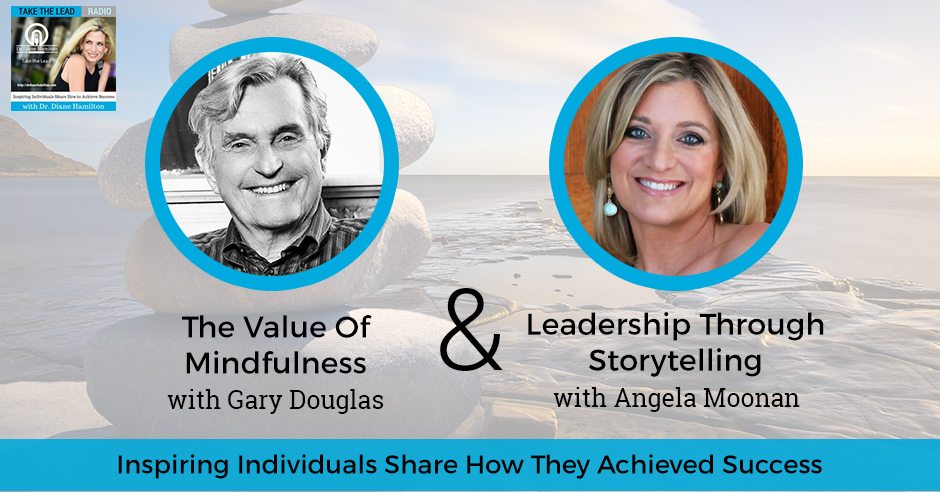
I’m glad you joined us because we have Gary Douglas and Angela Moonan. Gary is an internationally-recognized thought leader, bestselling author and Founder of Access Consciousness. Angela is an executive coach, corporate storyteller and a member of the Forbes Coaches Council. We’re going to learn a lot about culture and how we think now. It’s going to be very fascinating.
Listen to the podcast here
The Value Of Mindfulness with Gary Douglas
I am here with Gary Douglas, who’s an internationally-recognized thought leader, bestselling author, business innovator and Founder of Access Consciousness, a set of simple yet profound tools transforming lives in 173 countries. He’s authored or co-authored so many books including the Barnes & Noble number one bestselling novel, The Place. I’m anxious to have this conversation, Gary, because we have a lot that we both like to study in common. Welcome.
Thank you for having me. I appreciate it.
I was looking into so much that you do, and mindfulness is a huge topic. I know that you deal a lot with that. Before we get into that, I know you have a partner and you do a lot of things with your Cofounder and creator, Dr. Dain Heer. I want to know how you got together, how this whole Access Consciousness started and some background on you would be great.
I started at channeling information and that’s where Access got started. I started doing classes on it. It grew from there. Many years ago, I realized that I was dying and I didn’t know what to do about it. I was hoping I can get out of enough pain until I could die because I don’t like pain. It’s not one of my favorite things. I talked to my daughter that I’ve got this network chiropractor that wants to meet you. For some reason, I thought it was a girl, so I called up and I said, “What’s the name of that lady who does network chiropractic?” She goes, “It’s not a lady, it’s a man. His name is Dain Heer.” I said, “Give me his number.” I called him up and I said, “I’d like to see you.” He says, “When would you like to see me?” I said, “Yesterday.” He says, “I’m a little busy. When can you make it?” I said, “I can be there in twenty minutes.” He said, “If you can make it in twenty minutes, come on down.”
I went down to see him and I said, “Why don’t you barely work on me? Go directly to three and we’ll get someplace.” He said, “I just started at level three.” I went, “He’s lying. He hasn’t done level three.” I looked at him and I got this strange point of view. I spent the next 45 minutes flopping on the table like a fish out of the water. The funny part about it at the end of the session, I sat up and I went, “I’m going to live.” I didn’t say anything but I went, “To live, that’s not what I expected.” I expected to be out of pain a little bit so I could confront the death that was coming. I went, “I’m out of pain. I’m not going to die.” I was a little mad at him.
First of all, what was the diagnosis? What was wrong?
My body was shutting down on me. It’s like I was in pain all the time. I didn’t go to a doctor because the doctor would say, “I don’t see anything particularly wrong, but you should do this,” none of which ever worked. I had given up on doctors years ago. I was only doing homeopathy in the first place. The homeopathist said, “There’s nothing wrong with you. You stop drinking coffee and you should stop drinking tea. You should stop doing this and you stop doing that.” I said, “I don’t like stopping to do anything. I want to create. I’m not a stopping kind of guy. Give me a break.” I didn’t have the diagnosis. I knew that my body was dying. It hurts all the time. It never didn’t hurt.
You didn’t have cancer or anything that you could put your finger on.
No, I didn’t have anything diagnosable. I was just not making it. I had to get out of that. It’s like he was supposed to be my way out and he actually got me out. I was done and I looked at him, I said, “Please God, can I have him?” He eventually became my business partner. He saved my life four times, so I owe him. I’m not sure how he’s going to get paid back. I may have to die for him to get any money.
I had a chiropractor friend on my show who does amazing things. His name is Dr. Trevor Berry here in Arizona. I had never been much of a big believer in chiropractic until I saw some of the things that he could do for people. There are some of us that don’t know you’re going to find help in the most unlikely of places at times. Do you deal with most health-related things, or are they more conscious leadership? I’ve seen so much of what you deal with and I’m curious, are you dealing with more companies or individuals? What’s your focus?
[bctt tweet=”Fear is the lie we buy to justify the limitations we think we have to live by.” via=”no”]We deal with whoever shows up basically. We have companies. We have individuals. We have multiple things that we keep looking for. One of the greatest gifts is seeing the change that people manage to create. It’s a gift to see people come, not feeling well, not looking well, not acting well and then getting well. We’re doing it psychologically, mentally, physically, emotionally and every other way. I feel lucky that I get to do what I do and it doesn’t make “sense” by other people’s standards, but it makes sense by my standards.
We heard a lot about mindfulness. I had talked to Daniel Goleman a little bit about that he’s dealing with that. I had Ellen Langer on the show who’s the mother of mindfulness. Some of the people I’ve talked to, they set me straight on this because when I hear meditation, mindfulness and certain words, especially meditation. I always thought you had to completely clear your mind. Daniel Goleman is like, “It’s impossible.” You have to come back to your refocus. Do you think it’s all about focus? What does mindfulness mean to you?
Mindfulness to me, is what people use to create their judgments of what they will and will not have. The thing I tried to do is teach people consciousness so they have a willingness to be aware of everything and to have a judgment of nothing. If you have an awareness of everything, you’re more like animals. It’s like a rabbit. It’s going to be a bad year, they don’t have a baby. Did you know that? I didn’t. I went, “What is that? Is that mindfulness? That’s awareness. They have an awareness of what will be happening. It’s not a point of view about it.” I didn’t look at it and go, “It’s going to be a terrible year.” They don’t sit around. They know that it’s not going to be a good year so they’re not going to have lots of food. They don’t have babies that have to starve to death, which is very cool.
At the same time, the coyotes don’t have as many babies because they know it’s going to be a bad year and they’re not going to have as many rabbits to eat. Nature is the most magnificent creature that the planet has and we ignore at all times. Her point of view is, “What do we need? What’s going to happen? What’s next?” If we would have an awareness of what the future could be, we can have a whole lot more possibility than you can any other way. Mindfulness is about being present and aware, but most people call it searching for the right answer. I don’t consider it for the right answer. I consider it for the possibility of what could be. What is possible for us to have? Was it possible for there to be that could enjoy, have and create? What would it be like if we were creating heaven?
How do you get that awareness?
Awareness is starting to function without judgment. The first step is I have this point of view for every point of view you have about everything until you’re present with what is. You have two choices in life. You can align and I agree with the point of view and you can resist and react with a point of view. If you do alignment and agreement or resistance and reaction, you get washed away in the stream of life. If you do an interesting point of view, you can be present and go, “What is this? What do I do with it? Can I change it? How can I change it?” You start living in the question of possibility and the question of choice. The questions will create something greater.
Questions are very interesting to me since I write about curiosity. What type of questions can we ask?
The one thing you want to ask is questions that are designed to give you freedom from things. One of the things I noticed is most people do their questions from what’s going to make me right or what’s going to get this right. I don’t have the point of view that anything is right or wrong. I have a point of view that everything is what it is and what it’s going to turn out and what it’s going to be. What’s possible here that we haven’t considered? The possibility is the gift that we all have. The difficulty we have is we keep trying to get things right. If you never had to get anything right and you could never get anything wrong, what could you create?
I like that way you put it because everybody is so fearful of failure. That’s the problem.
We’re taught not to fail. At the same time, we’re taught that the only thing we’re ever going to achieve is a failure because we are so messed up. One of the things I try to get people to do is to start with the point of view, “What’s right about me that I’m not getting? What’s right about this that I’m not getting?” If you go from what’s right about things instead of what’s wrong, then you start to see what’s right about things. If you start to see what’s right about things, you cannot judge yourself. The biggest mistake I see people doing is judging themselves to try and make themselves better. The judgment does not create better.
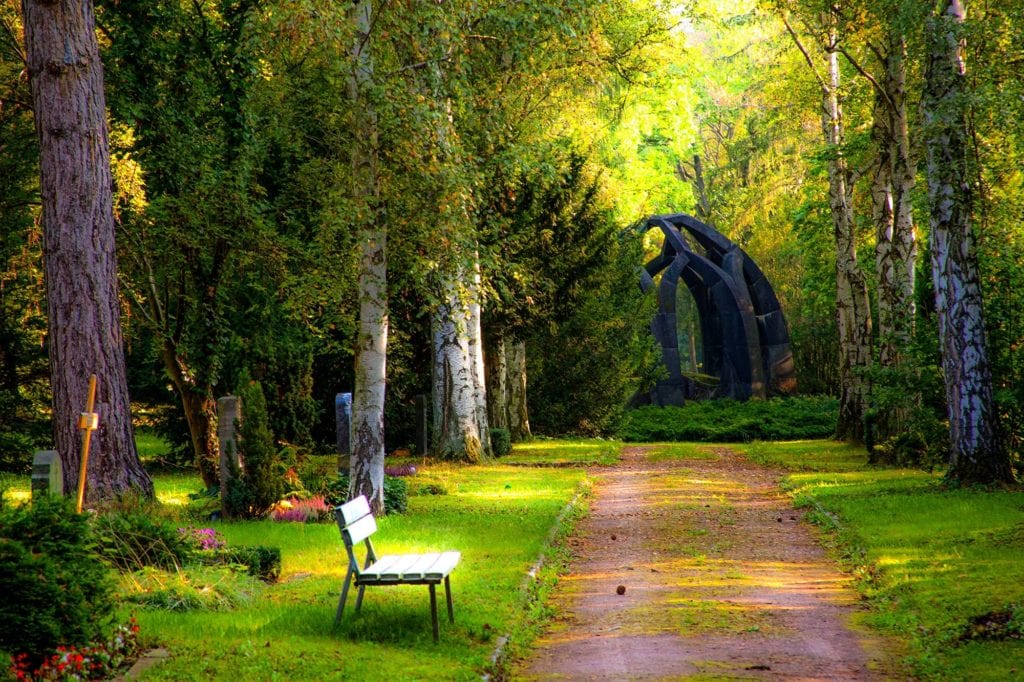
Don’t we have to evaluate?
No.
How do you know if you’re doing something that’s making you more successful?
It’s right only if you judge it. It’s the question of what will this create if I choose this? What I always teach people is if I choose this, what’s my life going to be like in five years? Not look like, but be like. If you start to function from what my life be like in five years, you start to see that every choice creates something. We don’t know what it’s going to create. We have to begin to recognize our choice is the source of creation, not our judgment. We always try to use judgment thinking we can create the right judgment that will create the right result. There are no right results. There are no wrong results. There’s just the question that creates.
These are all important principles in the workplace as well, but you have leaders who do judge you and have a culture that doesn’t promote this way of thinking. What do you do in that situation?
Teach them to ask a question.
You have to start at the top for culture to change an organization. Can you change it from the middle or from the bottom?
Yes, you can change it by being there asking a question.
What if they shut you down?
That’s fine. They shut you down, so what?
[bctt tweet=”98% of our thoughts, feelings, and emotions do not actually belong to us.” via=”no”]Do you keep asking?
You get to realize who’s smarter, them or me?
A lot of people are afraid because they’ve had other leaders or family members or somebody shut them down in the past. When I studied curiosity, I found four things keeping people from being curious. It’s fear, assumptions or the voices in your head, technology and environment. All these things are all our experiences.
Let me ask you a question. In an emergency situation, do you get calm, cool, collected and handle it or do you fall apart right away?
I get calm but not everybody I know does.
If you get calm, cool and collected, you have no fear. Fear is the lie we buy to justify the limitations we think we have to live by. There’s no such thing as fear.
Some of us is going into shock in some ways. You deal with it at the time and the fear hits you. I love how frank you are about this. I’m curious who other than Dain had an impact. Are there some books that have given you more insight into this? Is it Goleman’s work or somebody else’s important to you?
Yes, everybody.
You don’t have one particular book or something that you recommend?
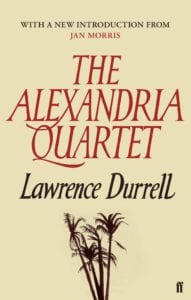
One of the greatest books I ever read was The Alexandria Quartet by Lawrence Durrell.
What is that about?
It’s four books written about Alexandria during the 1920s. It’s written from five different people’s points of view about the same events. What I learned from that is people always look at everything from their own point of view. They never can see another person’s point of view. Why can’t they see the other person’s point of view? It’s because they have defined their own point of view as the right point of view. They cannot see anything that doesn’t match it.
How do we get ourselves to look outside of our narrow point of view and be able to work with other people? That all ties into empathy.
If you start with an interesting point of view, I have this point of view about every point of view you have. At one point, I was going, “I hate turbans. Where did I come to the point of view that I hate turbans?” I finally realized I didn’t hate turbans. Other people hated turbans, and I was psychic and I could pick all that stuff up.
You tapped into your own awareness of it.
What I realized is that 98% of our thoughts, feelings and emotions do not belong to us.
How did you get that figure? Is that a guess?
It’s 99,000% that don’t belong to us.
We’re shaped from others, right?
We’re a bunch of psychic Sponge Bobs. We pick up everybody else’s stuff.
[bctt tweet=”When you get the right answer, you start laughing hysterically.” via=”no”]You said you think we have a sixth sense.
We have a level of awareness that’s never acknowledged or never use very well. One of the things that I’ve done is I’ve worked with kids that are autistic and they are totally psychic. It’s scary how psychic they are. They pick up everybody’s thoughts, feelings, emotions, all the time, which is one of the reasons they don’t know how to respond to people. They’re picking up conflictual points of view that exist in one person, and another person and ten other people all at the same time. They are constantly in a state of trying to figure out what’s going on. I tell them, “None of this belongs to you and you’re more psychic than you get. Is that your point of view?” They’ll always go, “No, whose point of view is that?” They point to somebody in the room and ask the person, “Is this your point of view?” They go, “Yes.”
You have to stand outside yourself and look at that. If you have all these conflicting viewpoints, it means we’re going to have that in the working world with people trying to get along. We want to develop empathy. How do you recognize that and realize what’s your actual voice versus somebody else’s and how do you go along if they don’t match?
First thing you do is ask, “Is this my point of view? If it is, what is it? What do I do with it? Can I change it? If so, how do I change it?”
What if you don’t want to change it? That’s the problem. Some people think that their point of view serves them well, but maybe it hasn’t. That’s my perspective.
Yes, but they love that. I was talking late to a lady and she said, “I’m afraid I’m going to go bankrupt.” I said, “How many times have you gone bankrupt?” She goes, “None.” I said, “How many times have you pulled yourself out of the fire because you think you’re going to go bankrupt?” She said, “All the time.” I said, “In other words, you love having the fear of bankruptcy so you can motivate yourself to actually create money.” She started to laugh hysterically. When you get the right answer, that’s usually what happens. You start laughing hysterically.
It’s very challenging for people to see sometimes the value of mindfulness. Do you have other stories that you can share where mindfulness has made a difference for someone?
I always ask, “Is this your point of view? If not, what are you going to do about it? If you think this is your point of view, how is it serving you?” Most people come to the point of view and the conclusion as though that’s going to serve them and that they will be better at what they do. Is it really serving them? Is it creating everything they desire? Is it going to be what they truly desire, want and require? What’s this choice going to create? That’s one of the reasons I keep giving this tool. What’s my life going to be like in five years? If I choose this, what’s my life going to be in five years? If I don’t choose it, what’s my life going to be like in five years? You can feel the sense of the lightness of one of those answers, and you go, “That’s how I know what to do and to choose.”
People may be feeling uncomfortable where they are in their work situation, for example. They know they’ll still feel that uncomfortable sense. They don’t know what they’ll feel if they don’t choose it.
It’s not necessarily. If they stop trying to come to a conclusion about it and ask the question and live in the question, it begins to show up for them as an awareness of how they can create more and have more. They didn’t have even the awareness they have of it, which they did. What would it be like if you are willing to acknowledge what you know?
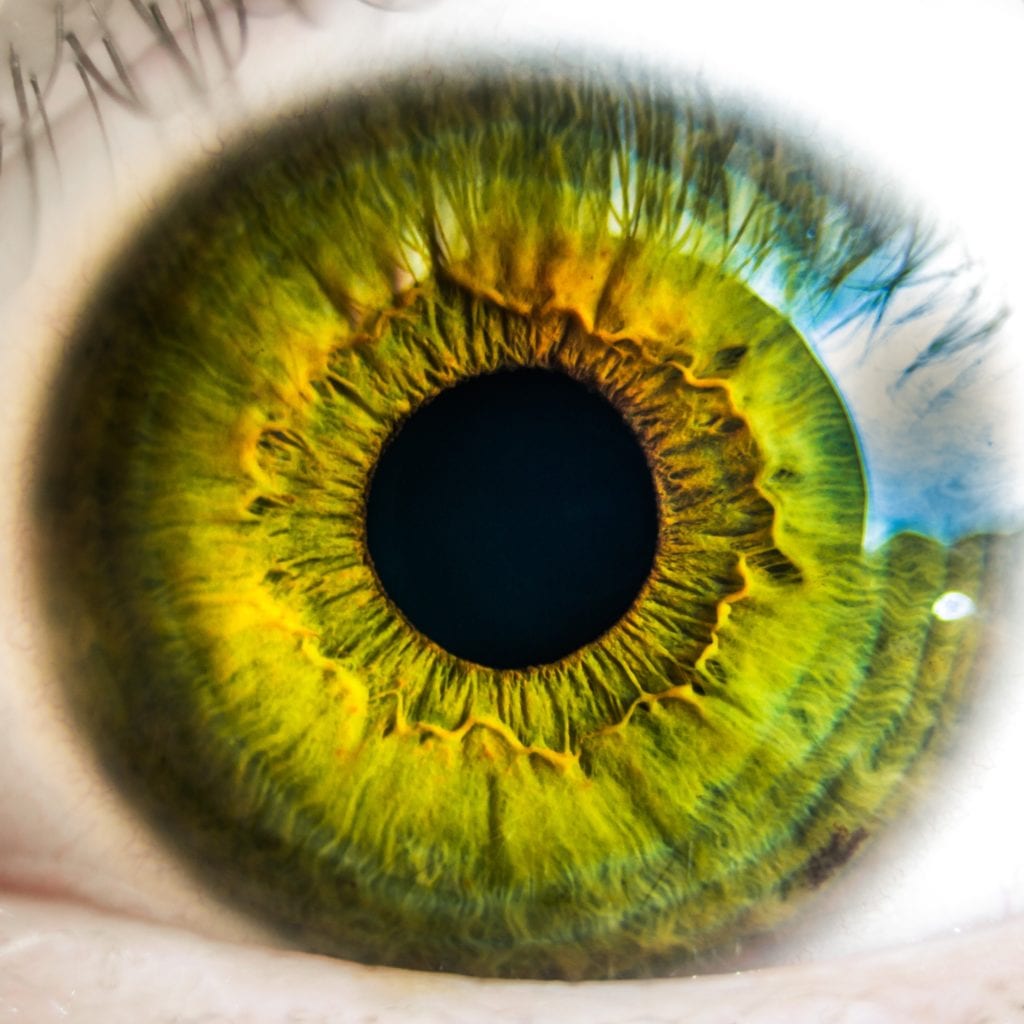
What do you think holds the most people back from doing that next step of changing something that once they’ve recognized to answer that question?
Primarily that they’ve spent their whole life trying to get things right, thinking if they could get it right then they would finally be right. They would finally no longer be wrong. What if it’s okay for them to be wrong?
I love the whole right, wrong subjective thing because I teach a lot of ethics courses. Subjectivity doesn’t come into people’s minds sometimes.
It’s almost never. It’s not something we’re taught. We’re not taught to see from our own point of view. We’re taught to see through other people’s eyes. Other people’s eyes are better than ours.
We do have code of ethics. We have certain things that we’ve created what is right and wrong in the minds of people. You go into different cultures and that completely changes. It’s like an eraser. You’ve got to figure out a new way of looking at it. It can be challenging. In our minds, we tell ourselves that we have to live by a certain code. We don’t want to break laws.
What if we didn’t have to have codes of conduct? Codes are laws and rules that we put into place to allow us not to be aware of what the choice is going to create.
You could have havoc. You can have certain things if you don’t have certain rules.
What if you’re aware enough to know what rules are going to work for you?
Who decides to help people in that respect without some guidelines? You had some experiences and things. There’s got to be a beginning of that road somewhere.
I always have that thing called the question. When I ask people questions, they become aware of what’s true for them and they will choose based on that. If people always chose based on what they knew was true for them, none of us would have conflict.
What about the sociopath? There’s going to be somebody outside that norm.
You should kill them.
There are a lot of important points to what you’re saying. There’s so much that we restrict ourselves to this little box of right versus wrong. I like the thought of realizing that there’s a subjective nature to all of it that we don’t recognize and it holds us back. That is what I’d like to see more people asking questions. I like that your focus is on the question asking. I could see why this is a global interest to people because there’s so much cultural conflict. You’re dealing with a lot of that with what you’re dealing with it.
I had a radio program I’ll be doing for a while. I have a group of people come together. We had a black lady, an Indian lady, a Muslim lady, gay Arab, a Spanish woman and her Danglish daughter. All these people came together and they all talked about how the gift they’ve gotten from Access was through the question. They realize how to create with everyone so that nothing became a problem. When you live with the question, ask the question from the question, you open the door to levels of the possibility that cannot exist in any other way.
Many people could improve their lives if they ask more questions. I love what you’re doing at Access Consciousness. A lot of people want to know more about your programs and what you offer. I was wondering if you wouldn’t mind sharing a website or somehow that they can contact you.
You can go to AccessConsciousness.com. My business partner, Dr. Dain Heer, has The Tour of Consciousness. He does videos all the time on YouTube to help people have tools to help themselves.
It was nice of you to join me, Gary. This was interesting and insightful. Thank you so much for being my guest.
It’s a pleasure. It’s great talking to smart people.
Thank you. I appreciate that.
Leadership Through Storytelling with Angela Moonan
I am with Angela Moonan, who is an Executive Coach and Corporate Storyteller. She helps her clients to convey their vision and aligning them with their story to create an impact for them that they desire in the world. She has a number of interesting things she does. We’ve met since we’ve both been on the Forbes Coaches Council. I’ve seen her work. I was anxious to have her on the show. Welcome, Angela.
Thank you, Dr. Diane. I appreciate it.
I know that there are some great content and contributors on the Forbes Coaches Council, and your information stood out to me. I was interested in what you do because a lot of it ties into some of the stuff I’m interested in. I love the storytelling aspect because a lot of us need to be better storytellers. I’m curious when you say, through powerful leadership, better storytelling that we can be more effective. Who needs to tell stories and what do you mean by that?
When we all reflect on it, we’ve been doing it since we were kids. You think about the stories that you work with your teachers, mentors, parents, siblings and all the way up on through peers. Storytelling to me why is so important because there’s a premise that I believe that what we believe is what becomes. Our brain has this magnificent way of serving it up to us, how we sift and sort in the world and how we see ourselves. It all begins with what is the story that you’re telling yourself about you. Are you the hero of your own story or do you give your power over to others? It’s someone else’s story you’re living in. It frames how you show up in the world, how you see yourself. Everything emanates because what you believe becomes everything that reflects back to you. The relationships you have, the roles that you played professionally, personally, all of it, it’s all rooted in that inner story. It’s where I believe we have the ability to shift our story.
In my research in curiosity, I found four things impact curiosity. They’re fear, assumptions, technology and environment. Assumptions include our voice in our head of what we tell ourselves. That definitely ties into what you’re saying. I was interviewing somebody who’s telling me about a book he thought was interesting that made him look at the world a little bit differently. It was called The Alexandria Quartet. Everybody sees the same situation but from their own point of view. We tell ourselves things based on our experience in our past, our background and how it’s shaped us. I usually start by asking people to give them their backgrounds. As we’re talking about that, I’d like to know a little bit more about you because I know some, but how did you get to this level of what you’re doing as consultant, coach and all the things that you do.
[bctt tweet=”What we believe is what becomes.” via=”no”]I started out at a very young age as a performer. I’ve sung all over the world. I’ve sung at Notre Dame Cathedral in Paris. When that burned, I thought it could be a sad story or it could be that I get to decide how to shape that story. To me, it’s another sign of transformation, a different form of it. On the surface, while it may seem sad and all this history. To me, we’re all moving up to a whole new platform. Even the old structures are renewing. I’ve been a storyteller. It just so happened that music was that way in which I connected with people and told my story. As I went on, I was a professional singer for many years. I went to school for classical music. As I went through my travels, I saw the impact of that storytelling could have on an audience and how it shaped people’s experiences, transported them, and created this wonderful journey for them. It was a wonderful platform to begin on. As I got more and more acclimated with different clientele, it was a natural evolution. It’s one foot after the other. It took me into business, and through business, I was very involved with many different forms of media. That gave me a different point of view on storytelling and how to reach masses of people.
You know about the evolution of media and storytelling in that format. As I worked with clients, business owners, leaders and teams, I realized as I was helping to sell stories that were authentic. What you saw, especially as we’ve seen the world of online reviews and social media, it shifts the way business has to do business very authentically, truthfully and transparently. They don’t have a choice. The integrating of that internal, the employee satisfaction and leaders being congruent with their own vision of who they believe they are and who they want to become and disconnect that might’ve occurred over the years in their roles. The companies are them. If you’re an owner of a company, your company is you. It’s getting that congruence in that story and being able to convey it with absolute certainty and clarity. Even if it means the clarity is evolving. You’re showing up in that truth. Your employees know it, your clients know it. It’s unbecoming like everyone else. It’s been a natural progression for me to go from a stage into a smaller stage, one-on-one with people and 1 on 10, 20, and 200 depending on the size of the company’s teams.
I’ve had a couple of guests on my show who sung a little bit on my show. I had Lynn Rose and Willie Jolley. He gave me a nice serenade. That’s one thing I wish I had to be able to sing and the room would definitely clear out.
I have some dear friends. She coached all the cast for Chicago, Catherine Zeta-Jones, Renee and Richard. She has a place called Big Voice Studios up in Toronto. She has an absolute belief to her very core that everyone can be a singer. It’s a wonderful place to begin though because the story that you tell yourself, where does your voice come from? Even with the executive and the CEOs, they being in tune with their voice and what they want to say in the world is all important. I’ll even say to them, you might not be singing it on a melody, but you’ve got something very important to say. We work through that framework. If the idea of performance doesn’t necessarily sit with their lexicon, we shift that a little bit. Everyone has a good story to tell. Everyone has something that they feel is important to them if they want to share with the world.
It’s challenging for a lot of people to give talks in the business world. They always say that they should learn to be a better storyteller. Do you give people advice on how to be a better storyteller?

Yes. I will tell you a story. When I was a little girl, there was this lilac tree outside my house that I loved. I was maybe six or seven years old and I’d climb up in this tree. It’s a favorite place. I felt safe there. I felt creative there. I felt mysterious there because you’d peek out. I lived in the country, so there was not a lot of things to do, so your creativity has to go into the full bore. I went to this wonderful workshop at this place called Kripalu in the Berkshires. It’s a beautiful yoga retreat. Do you know Martha Beck? Are you familiar with any of Martha’s writing? She’s wonderful. You might want to check her out.
What kind of stuff did she write?
It’s self-development material. I went to one of her workshops and she showed us how to connect with our own story. I know it seems like, “What does the lilac tree have to do with this?” It’s a template I’ve evolved to fit better in the corporate space. The essence, it’s very the same. It’s a wonderful exercise. Through this whole process, I realized what that lilac tree represented. I shaped this beautiful story around it. We didn’t know we were writing a letter to ourselves, so we were asked to tell a story to this lilac tree. The way that she shaped it coming out of it, it was beautiful. It was one of those epiphanies the surprise and delight of saying, “That’s my life story.” Realize how important connecting to that life story is in the professional workspace. Many people disconnect from their childhood or disconnect from a place that was important to them and for different reasons. Now, they’re in the professional space and they think that the one isn’t related to the other.
How did you pick this tree as who you’re going to write to? I’m curious about that.
You pick a favorite place. You say, “What is an absolute favorite place that I loved?”
[bctt tweet=”Everyone has a good story to tell, something that is important to them that they want to share with the world.” via=”no”]Let’s say you loved Hawaii, then I’d write a letter to Hawaii?
You’d write a letter to Hawaii. I’ll send you this format because it’s wonderful. I have evolved in a little bit. There are four or five parts. It’s almost like a Q and A that you walk yourself through. When you’re done with it, you realize it’s a letter to your true self and the enlightenment at that moment that comes out. I speak with business owners, I’m sure you’ll find this true. They lose their curiosity. They lose that childlike wonder. Out of necessity, they get lost in the minutia of running a business. The work that we do, I always say is it’s simple, but it’s sophisticated. The work you’re doing has a high level of sophistication. I’ve garnered this as well from Pema Chodron and some of the other people that I have studied for many years. You’ll find it in Buddhism, you’ll find it in many different schools of thought. That is the stripping away of. It’s not becoming more. It’s actually simplifying and pulling away a lot of the cloak and layers of things that have been piled on to us and getting to the essence of who we have always been. That’s this one framework.
There are many different frameworks for corporate storytelling or any kind of storytelling for that matter that get you to whatever destination it is in that particular timeframe that you’re looking for. This one helps shape the corporate vision. If that leader can get to the essence of this and get that crystal clear clarity, can you imagine how that emanates? You know how that emanates when that leader has confidence, has clarity of purpose, clarity of version and know why they’re doing and what they’re doing. That translates to everyone in the organization. Once it infests in a positive way internally, it can only move out to the customer’s experience, the client’s experience, the patient’s experience. I work with hospitals and we talk a lot about this because you can imagine in those moments of truth between the caregiver and the patient. What can be created in those moments? It can shift a person’s complete perspective of their situation. They’re either a victim and they’re an ill patient, or they’re on the mend. It’s in that framing of that conversation. That is the difference.
It’s interesting because so many doctors have a hard time with empathy. They had to distance themselves or they would constantly follow that light for everybody. Sometimes people distance themselves from feeling what other people feel. That’s why emotional intelligence is such a hot topic because we need to be able to see things from other people’s perspectives and put ourselves into their shoes, and that can be very hard for a lot of people.
It can. That is in trying to get the core of what your belief is. Do you need to cut yourself off and distance yourself or do you simply need to make yourself bigger and stronger? It’s a nuance but it is there. There’s a difference. As you’re able to make yourself more expansive, stronger, more fortified, it isn’t cutting off. It’s getting bigger. As your radius is bigger, it is less penetrable by that which is outside of you. It is wired in science. You think about Dr. Amy Cuddy a Harvard researcher, and her power positioning and all of that. If you can do that with your chemistry and your physiology, what’s the risk and damage that can potentially emanate if you take the mindset of, “I have to distance myself in order to keep myself safe and off the objective?” There’s a big difference between that and the risk that is thereby saying, “If I am fortified, if I am bigger, if I am light, if I am in strength, if I hope in the midst of that darkness, I’m always safe.” There is no danger in that. You have the wherewithal to ensure that the person that’s sitting or lying in that bed feels bigger and stronger because you are. Not because you gave away your strength, but because simply by being stronger, they are stronger.
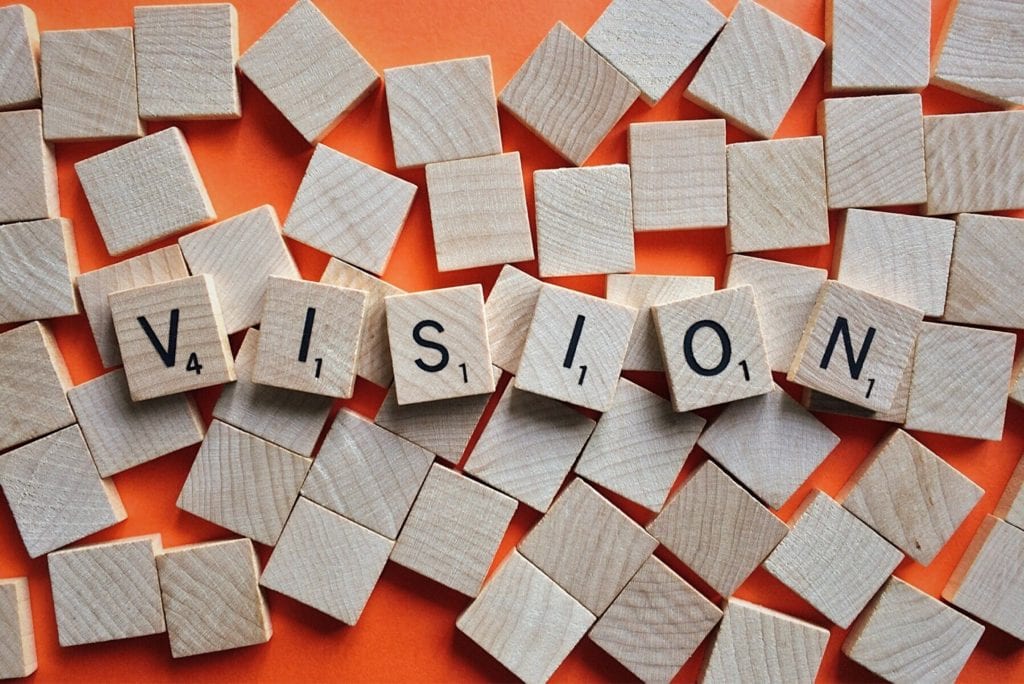
I find it’s interesting because I was looking at some of the stuff you do. I was asking you a little bit before this show about this OLIVUS Principle that you deal with on your site. I wasn’t familiar with that. You talk about being united not divided. Does this all tie into this same thing or is this something different that you do?
It all emanates from the same place. My writing partner for many years, we’ve worked together in many different projects. I’m not going to take full credit for the OLIVUS Principle. He and I have created it and used it collaboratively for many years. I’m with a client and their team. It is the premise that a rising tide raises all boats. The idea is that by you focusing on you and realizing everybody else isn’t any of your business from the standpoint of making better, helping or improving even for people who call themselves healers. The helping and the focus, it’s like tending to your own garden. When you tend to your own garden and make your garden more vibrant and vital, the people that are looking, interacting and engaging with you naturally become more motivated.
You can either force motivation on someone, which by the way doesn’t work or you can allow them intrinsically to choose. They’re going to make a choice of whether that resonates with them at all. 97% of the time, it resonates on some level. It might be subtle enough where you don’t see it right away. We created a song called We Are One based on this premise for a charitable organization that I helped found called Music for the Mission. We created a song called We Are One. We are one created out of many. The idea is that we are one. We’re stronger together than we are divided. It doesn’t mean I have to go out and help everybody else. The best help I can give to someone is by doing the best way I can do me. When I do that, I’ve shown someone else a way that they can do them. It’s to show you how I’m doing it for me. In so doing, are you inspired to do it for you? You already have all the capabilities inside of yourself to do that.
Sometimes we need a model in front of us that we can say, “You’re doing it.” Look at what’s happening there. Sometimes they can’t even articulate exactly what it is. They just know they feel different from having been in your presence. I put lots of stuff in my bio and experience and all that because it’s a framework that helps a lot of people chunk their ways through, “Who is this person and how is she relevant to me?” When it’s all boiled down, I continue to learn to expand my knowledge, my insight about myself in the way that I work in the world. As I do that, I become bigger, stronger and more inspirational to those people around me. When I walked into that client’s team, you could see everybody feels like they have more capability because they see me having more capability.
You brought up a few things that remind me a lot of when we study engagement and how people want to know what they do ties into the overall goals of the organization. When you were talking about the sense of purpose of how we can motivate people, that was what my research was about too to find out how we could motivate people. I don’t think we’d go back far enough in some of these books, talks, and things that talk about motivation. That’s why I studied curiosity because the key to developing all these areas is to get people to ask questions.
[bctt tweet=”It’s important to connect to your life story in the professional workspace.” via=”no”]Questions are always the answers. That’s the old thing. It’s because it’s true.
You mentioned Amy Cuddy. I love her TED Talk. I also love Amy Edmondson‘s TED Talk. She was on my show and she talked about how to build a team and how we have to become more humble, humility combined with a curiosity to collaborate well. I know you work on heightening the spirit of cooperation and collaboration. There are many issues with teams that what you do is important to so many people. It’s interesting to see when people come up with these unique platforms or principles. It’s something that stood out to me because as I asked you before we got on the show like, “Should I know this one?” It wasn’t one I was familiar with.
To your point with teams, I’m mindful of when I’m working with teams. My methodology is in the sense of stripping away of all of the pretenses, a questioning, and unearthing, tilling up the soil in terms of beliefs and old assumptions. Asking the question, might there be a different POV? It’s walking that balance of appreciating that you are simplifying and you are stripping away, but they can’t feel disarmed. As a result of the stripping away, it’s like unloading ten pounds of lead. That’s what it’s got to feel like. That’s what I’m shooting for. I’m shooting for them feeling more buoyant. There’s a friend of mine, I listened to one of her talks and I loved this phrase that she uses, “Our cork naturally wants to float. It’s everything that we do to pull it down to prevent it from floating.” The stripping away of these old assumptions and a reframing of the beliefs in a way lets us be buoyant. In a way, it allows us to pop up to be our whole true self. Imagine if you’re a cork. What does it feel like as you’re coming to the surface? It can feel like you’re crossing that shaky bridge. My role in any leader’s role that I work with is understanding.
The empathy and the appreciation for the wobbliness of that timeframe in someone’s life or in their role at work. We put on so many masks when we go to work because of fear, because of uncertainty, because of doubt, because, “I’m not good enough.” It’s helping them learn to look at their beliefs and create those moments of truth where you can ask the question and it’s in a safe enough environment. That does come from leadership. If I have a team that wants to work with me, but the leadership is at all disengaged, it can work to a certain degree, but it’s never going to fully fly to it’s potential because the company is that leader. If the staff sees that incongruence at all, it’s so easy to revert back anyway to an old belief and old habit. They’ve got to see and feel that momentum and momentum are the OLIVUS Principle as well. When you look at a team that’s rowing and look at the momentum they have when they’re congruent, even one is not what happens.
There’s so much what you talk about that ties into what is important in working on corporate culture. I know you have a lot of mindfulness work that you’ve written about on Forbes and a lot of different things. A lot of people can tie into a lot of that. I want to make sure that everybody knows how to reach you. Can you share how they can find you?

My website is my name just like yours. It’s AngelaMoonan.com. I’m on LinkedIn as Angela Moonan. That’s a wonderful platform. It’s a great place to connect and get a sense of someone. I’m also on Facebook. I’m on Twitter, @BlueIStories, and all of those social platforms are inclusive on the website as well. Probably the website is the best place to go.
Thank you so much for being on the show, Angela. It was interesting. Many people could gain so much knowledge from you. I enjoyed our conversation.
Thank you so much for having me. I truly appreciate it. Hopefully, we’ll get a chance to have our paths cross again.
I’d like to thank both Gary and Angela for being my guests. We get so many great guests. If you’ve missed any past episodes, please go to DrDianeHamiltonRadio.com. I hope you join us for the next episode of Take the Lead Radio.
Important Links:
- Angela Moonan
- Access Consciousness
- Forbes Coaches Council
- The Place
- Dr. Dain Heer
- Dr. Trevor Berry – Past episode
- Daniel Goleman – Past episode
- Ellen Langer – Past episode
- The Alexandria Quartet
- The Tour of Consciousness
- AccessConsciousness.com
- Lynn Rose – Past episode
- Willie Jolley– Past episode
- Big Voice Studios
- Martha Beck
- Music for the Mission
- Amy Cuddy – TED Talk
- Amy Edmondson – TED Talk
- AngelaMoonan.com
- LinkedIn – Angela Moonan
- Facebook – Angela Moonan
- @BlueIStories – Twitter
About Gary Douglas
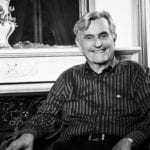 Gary Douglas is an internationally-recognized thought leader, bestselling author, business innovator and founder of Access Consciousness®, a set of simple-yet-profound tools currently transforming lives in 173 countries. He has authored or co-authored numerous books, including the Barnes and Noble #1 bestselling novel, The Place. An avid investor and entrepreneur, Gary is a vocal advocate of Benevolent Capitalism and conscious leadership. He co-hosts a weekly radio on Voice America and has featured in TV shows, print media and online publications around the world. He is renowned for his unique insights on love, relationships, money, business, aging, leadership and emotional freedom
Gary Douglas is an internationally-recognized thought leader, bestselling author, business innovator and founder of Access Consciousness®, a set of simple-yet-profound tools currently transforming lives in 173 countries. He has authored or co-authored numerous books, including the Barnes and Noble #1 bestselling novel, The Place. An avid investor and entrepreneur, Gary is a vocal advocate of Benevolent Capitalism and conscious leadership. He co-hosts a weekly radio on Voice America and has featured in TV shows, print media and online publications around the world. He is renowned for his unique insights on love, relationships, money, business, aging, leadership and emotional freedom
About Angela Moonan
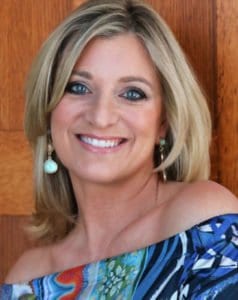 As Executive Coach & Corporate Storyteller, Angela Moonan helps guide her clients to convey their vision, and see them through to aligning with their story to create the impact they desire in the world. Through powerful Leadership, better storytelling, congruence and clarity, teams and leaders alike get to move to a whole new level of effectiveness, happiness, and ultimately, purpose and profit. And they do this — with GREATER EASE than they’ve ever experienced before.
As Executive Coach & Corporate Storyteller, Angela Moonan helps guide her clients to convey their vision, and see them through to aligning with their story to create the impact they desire in the world. Through powerful Leadership, better storytelling, congruence and clarity, teams and leaders alike get to move to a whole new level of effectiveness, happiness, and ultimately, purpose and profit. And they do this — with GREATER EASE than they’ve ever experienced before.